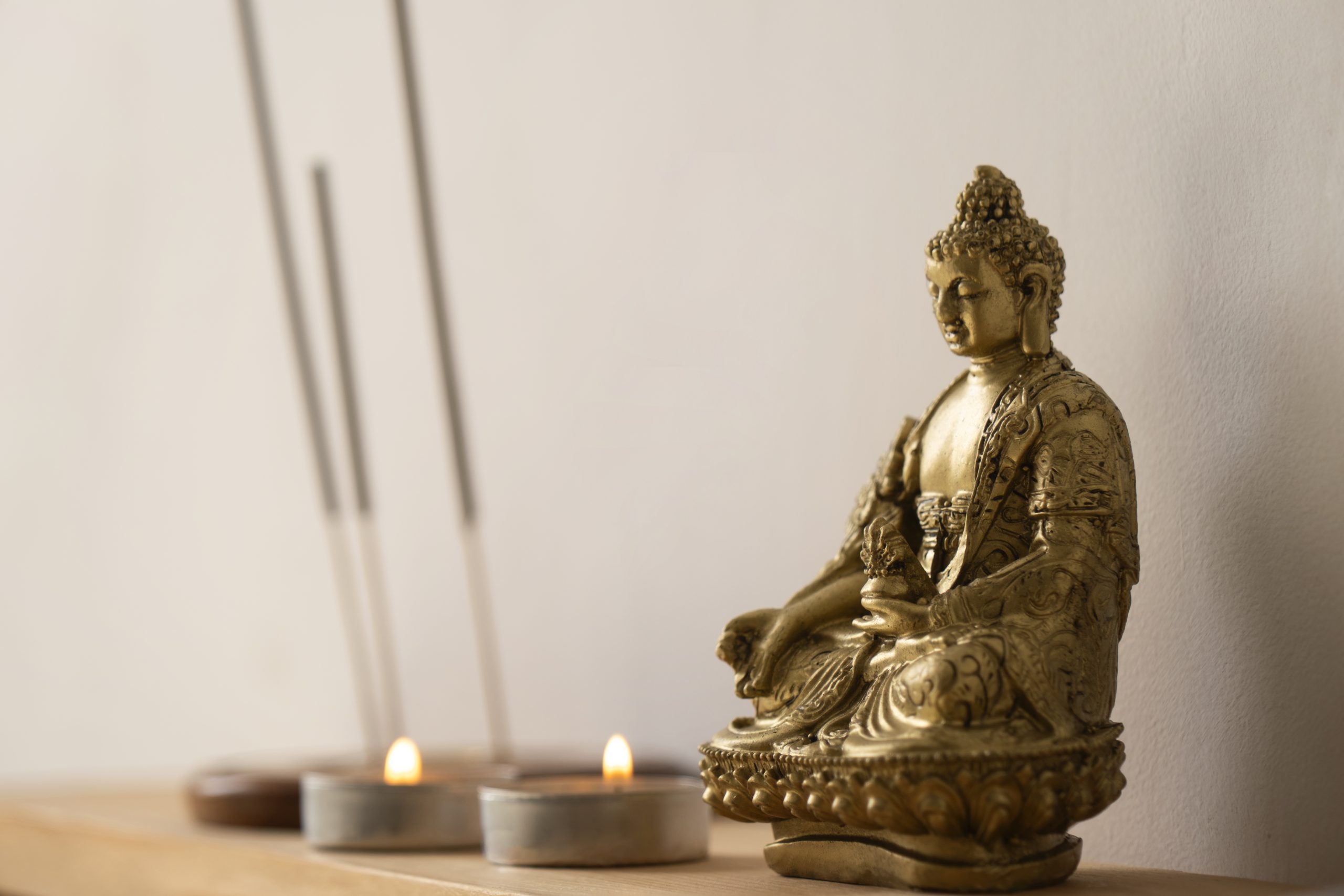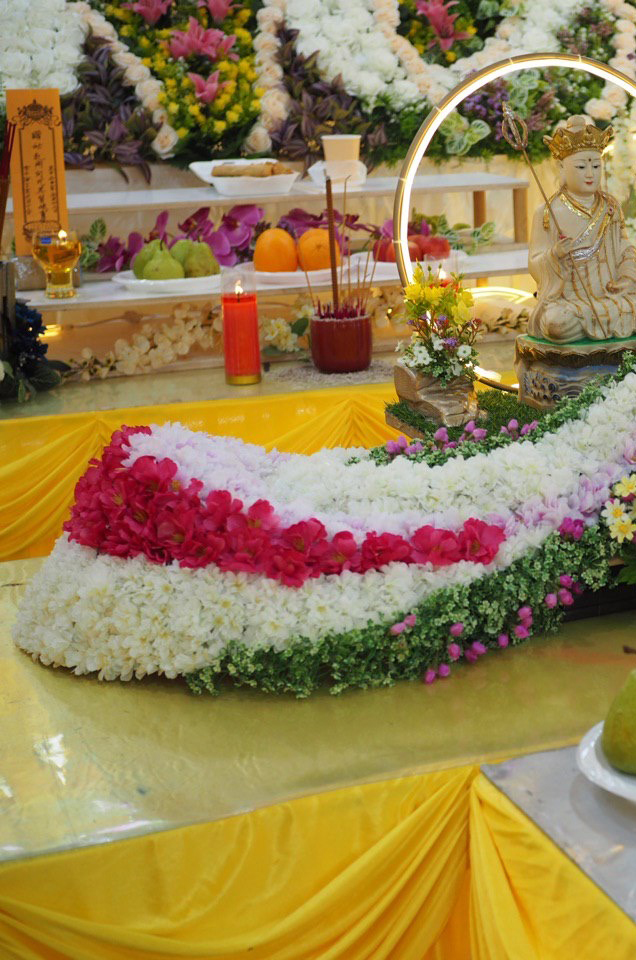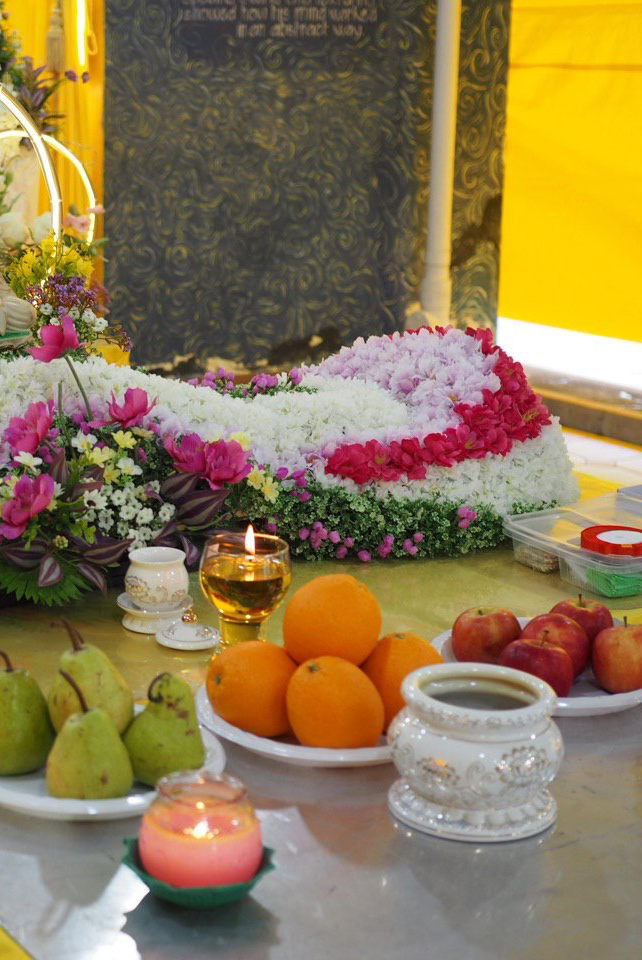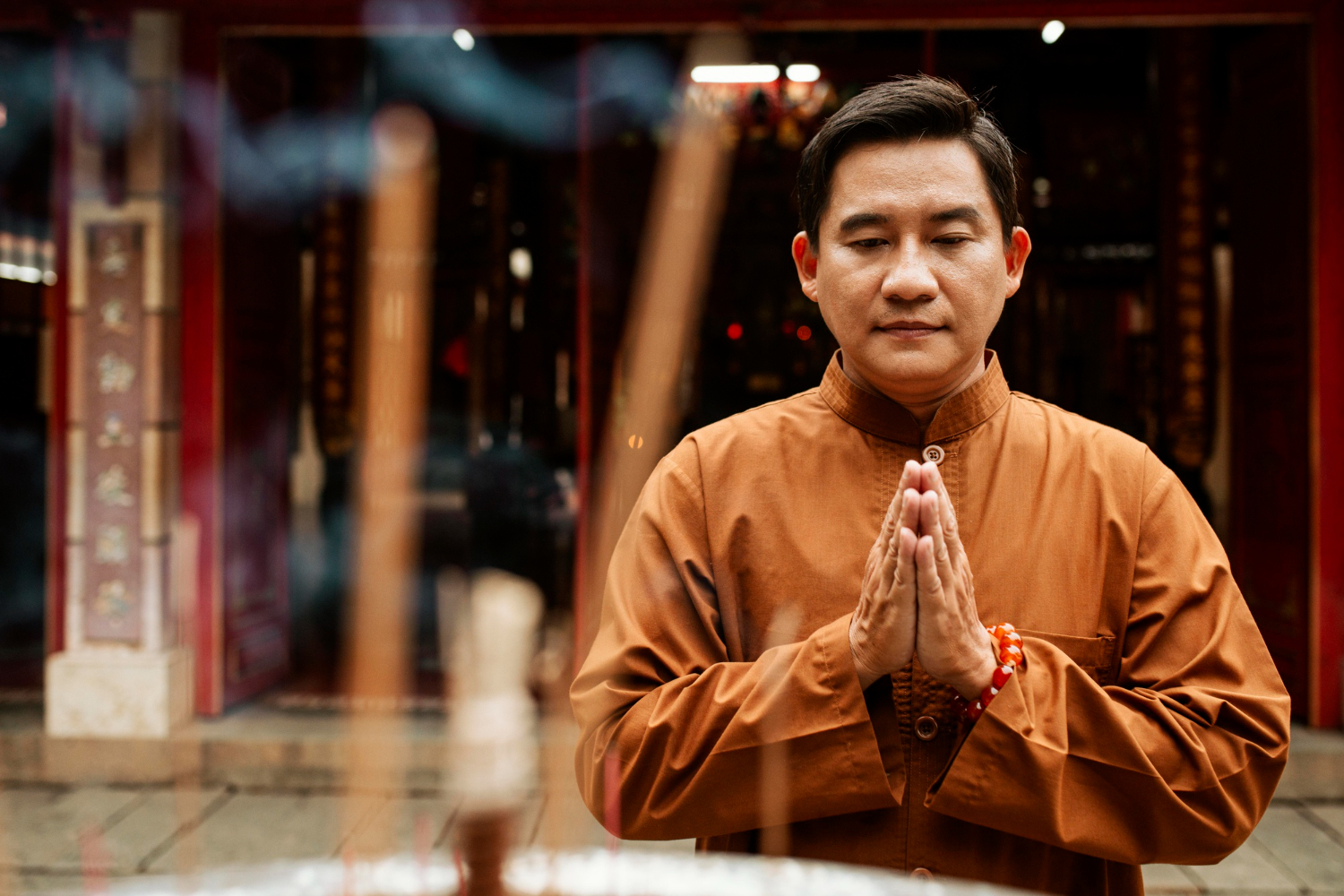



+
+
+
Allow us to be your trusted companion on this journey. We are here to assist you every step of the way, ensuring that the funeral arrangements align with Buddhist traditions and values. Our dedicated team will help you create a meaningful and respectful farewell that reflects your loved one's life and your family's beliefs.
Discover how our Buddhist Funeral Package can provide solace, simplicity, and serenity during this delicate period. Let's take this path together, preserving the legacy of your loved one with grace and reverence. Our Buddhist funeral Package covers the following.
3 Days Package
$5,980
5 Days Package
$6,980
7 Days Package
$7,980
Transportation of Deceased from Hospital/ Home to Wake Location
Professional Embalming, Wash & Make Up Services
Booking of Cremation/Burial Slot (Mandai Only)
4 Sided Glass Casket (Brown/ Yellow/ White)
Tentage Set-Up for Void Deck
1 Set Carpet Flooring & Valance Curtain
4 Surround Canvas
1 Set Casket Stand with Skirtings
4 Set of 3ft x 6ft Table with Skirtings
15 Square & 10 Round Tables
100 PVC White Chairs
2 Air Cooler (in Casket Area Only)
1 Set General Lighting
6 Standing Fans
1 Set Lightbox
Floral Arrangement
Floral Photo Wreath
Coffin-Top Floral Arrangement
2 Table Floral Arrangement
2 Altar Table Floral Arrangement
Photo Enlargement
1 Large Photo 10" x 12" with Wooden Frame
6 Passport Sized Photo
Buddhist Altar Set Up
Condolence Donation Book
Safe Box for Money Collection
Buddhist Prayer Service
1 Monk for Encoffinment
1 Monk for Final Night
1 Monk for Last Day
Offerings for Deceased
6 Vegetarian Dishes and 1 Bowl of Rice
3 Types of Fruits
Offerings for Buddha
Huat Kueh and White Bao
3 Types of Fruits
Funeral Flower Hearse
Emcee Service
Air-Conditioned Bus for 45Pax (2ways)
Flower Water
Dedicated Guide During Ash Collection
8ft Paper House & 20 Bags of Pre-Folded Paper Money ($1,780 Nett)
Night Taker Per Night (11pm-7am $200)

"*" indicates required fields
Buddhist funeral services in Singapore are held with simplicity and dignity. They take place in funeral homes, not temples, within a week of the loved one's passing. The ceremony includes an evening viewing, typically held in venues near the deceased's home or funeral parlors. In some cases, tentages are set up at HDB void decks, with bookings managed by the Singapore Government's Housing Board.
Chinese Buddhists allow the families to either bury or cremate the dead as per their family custom. Once the ceremonies get over(post funeral), the casket bearing the dead is taken to the burial site which is often on a hillside via a funeral procession service. In Singapore, land burial site is at Lim Chu Kang Cemetery. While the casket is being lowered into the ground, it is customary that the family looks away as a show of respect. During cremation, it is a traditional custom for the family to witness the cremation. In Singapore, regardless of land burial or cremation, post funeral rituals and chanting must be performed by a monk.
In Singapore, mourners can either send sympathy cards or white flowers to the family after learning of the death of their loved one. Chinese customs include giving condolence money to help ease the funeral spending of the affected family. However, anything red should be avoided. Gifts, donations, or food can also be sent as a show of respect and charity. During the funeral, it is expected to bring flowers to present to the family as a show of honor and respect. These should be placed near the altar. Mourners are also expected to join in the chanting and meditation that takes place during the funeral and should refrain from documenting the ceremony post funeral.
During the cremation ceremony which takes place on the morning of the burial/cremation, monks are invited as per Buddhist funeral traditions. They chant verses, Buddhist scriptures, eulogies and give sermons thereby aiding the family with the whole ceremony. Organ donation is not prohibited since it is seen as a way of helping others. However, the medical practitioner is expected to wait for at least three to four days before the autopsy since it is believed that the soul departs the body during this period. While embalming is a common custom for Buddhist Funeral in Singapore, mourners are advised to wear white as it symbolizes sympathy and grief.
Since the traditional Buddhist belief is that it takes 49 days before reincarnation of the deceased, prayers will be conducted by the same monk. Buddhist funeral rites are similar to that of Taoist funeral in Singapore, where in both religions, it is believed that after the 49th day, the deceased will reincarnate. The 49th day, Buddhist funeral prayer will be conducted by the monk with a series of chanting. Whereas, Taoist funeral customs are led by priests, a Taoist ritual, known as “Gong Teck” which consists of burning of paper house.
At a traditional Buddhist funeral, the family wears white or cover themselves using a white cloth. Mourners should wear simple, black or dark clothing. Wearing expensive or flashy clothing/jewelry is seen as a display of wealth and not in keeping with Buddhist funeral etiquette.
A Buddhist funeral package in Singapore typically includes services like venue setup, transportation, monks or priests for religious ceremonies, cremation or burial arrangements, floral decorations, catering, and administrative support. Customizable to individual preferences for funeral rites, and Buddhist traditions, our funeral service package offer a comprehensive solution to honor the deceased with Buddhist funeral service.
Buddhist funeral services offer various packages to honor the deceased. These packages encompass memorial services, cremations, and burials, with the choice depending on regional beliefs and customs. Typically, you can opt for either cremation or a Buddhist burial.
There are two main types of Buddhist ceremonies: cremation and burial. Cremations are common and usually held in a peaceful crematorium set amidst natural surroundings. Burials, reserved for specific cases, take place in Buddhist cemeteries, often in similar serene crematorium settings. Additionally, there are memorial services, services involving food and drink, and service of offerings, all frequently conducted at temples or Buddhist places of worship.
In Chinese culture, funerals are considered unlucky. So pregnant women are advised to avoid going to funeral-related activities. If you have to, wearing an auspicious red scarf around the belly is said to counter the negative energy from funerals.
There is no hard and fast rule as to whether a pregnant lady can attend a funeral or ceremony. It depends on how you feel, and it would be advisable to check in with the bereaving family and your own family (if you are attending as a guest) as this is seen as a taboo to some.
Yes, it is entirely up to the choice of families on the types of funeral services they wish to carry out for their deceased loved ones. Some families may opt for “direct cremation” or “direct burial”, where the body is sent for cremation or burial shortly after passing.
Families may conduct simple prayer services at home, or at the crematorium service hall, before the cremation. Some families may also choose to hold the memorial service after the cremation, i.e. the ashes are present at the memorial instead of the body.
